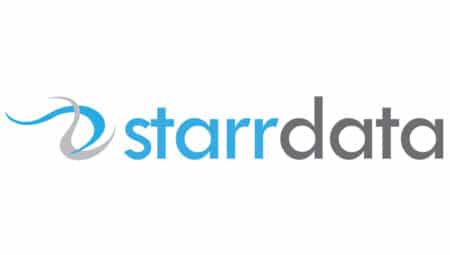Improving your business’s efficiency is a simple way to make a positive impact on your bottom line. Automating tasks with Salesforce saves the average user between 5 to 10 hours per week; add that time up over the course of a year and you’re looking at significant savings.
Companies that implement Salesforce quickly discover its ability to streamline their sales processes. Sales reps and assistants use it as a tool to:
- Improve organization
- Provide consistent service to clients
- Prevent the errors that can slow processes down
How can you automate the day-to-day duties that take up your team’s valuable time? At StarrData, we’ve helped hundreds of companies streamline their processes with Salesforce.
Here are just a few of the ways Salesforce enables businesses to automate time-consuming administrative tasks.
#1: Report Automation
Since the advent of the spreadsheet, sales managers have found reports to be a hassle. The process of inputting data into spreadsheets and generating sales reports is time-consuming and decidedly not the most efficient use of any manager’s time. Automating that process would leave more time to sell more, check the team’s monthly standings, and provide updates to superiors.
Salesforce offers sales managers the report generation capabilities they want; StarrData’s admin services can implement the automation that will remove the dread that reports typically inspire in sales managers everywhere.
With Salesforce, reports are generated automatically based on the parameters and schedule that you set. Organizations use report automation to create:
Daily updates— Daily sales reports can be delivered to your inbox every weekday morning. This will enable you to get a handle on your team’s performance before your morning huddle.
Individual Sales Numbers— Salesforce’s report automation allows you to send an individual sales numbers to any sales rep (or to yourself) for review at any time. Allowing each rep to see their totals for the week can be a morale boost or the encouragement they need to improve next week.
Campaign totals— When your team works to achieve a goal for a sales campaign, sending automatic updates to the team might give them the push required to make it to the finish line.
#2: Data Hygiene
Salesforce is only as effective as the information that’s put into it. When you have outdated or duplicated data, your team won’t have the use of the full power of Salesforce. With that in mind, some organizations task an office assistant or billing clerk to spend hours inputting new contact information or fresh leads into the database. This can be a full-time job, and it’s alarmingly prone to human error.
Salesforce administrative automation eliminates this task by automating the process of uploading information. Now, your database will be completely up-to-date; your sales team will have the most current data, ensuring that any information about leads will be accurate.
StarrData works with your data to determine its source, building channels that deliver all the information to the proper place. Your sales team will have the information they need when they need it and they can use it with confidence.
#3: Collaborative Sales Support
One of the greatest feats of administrative automation is the reduction of the need for meetings. Sales reps and managers alike agree that meetings are one of the biggest drains on their productivity. In fact, salespeople report that they spend as much as 10% of their time in meetings and a mere 34% of their total workweek selling.
Imagine if your sales team could take the time they’re now spending in meetings and put it toward selling. That alone might recoup any cost associated with implementing Salesforce!
Salesforce’s workflow automation tools enable management and staff to collaborate virtually; management maintains total visibility into their team’s activity and the sales team can check in from the field. No time is wasted in travel and small talk.
Tools such as Lightning Process Builder can streamline your processes and significantly reduce the need for meetings. Here are a few of the different ways users manage their workflow:
Automated order management— Eliminate unnecessary status update meetings by tracking important customer orders through order execution tracking. Email notifications will act as prompts to ensure that nothing falls through the cracks.
Chatter — Salesforce’s enterprise social network tool, Chatter, enables users to connect, collaborate, and take action anywhere, anytime. Productivity will never be halted as you await a response to an email.
Discount approvals— Sales reps no longer need to talk to a manager about offering special deals and discounts. Now, you can create an automated workflow through Approval Processes. Managers will receive automatic alerts when the discount is requested and they can easily approve requests online.
Opportunity management— Most sales managers spend a lot of time telling their reps about opportunities to pursue. This process can be automated through notifications triggered by assigned opportunity stages. For example, when a customer hasn’t had a closed deal in 3 months, their status could change to “Urgent Opportunity.” Then, a notification would be sent to the appropriate sales rep. When a rep closes a deal with that customer, their status would change to “Closed Won,” and it would become a trackable order.
No Coding, No Problem
Yet another benefit that comes with automating Salesforce functions is the lack of programming knowledge that is required to make it happen. You don’t need to know anything about code or even computers. StarrData specializes in implementing and automating Salesforce— all you have to do is take advantage of your newfound free time.
StarrData automates routine and regular Salesforce processes to save you time and money. Connect with their implementation team now to see how you could be saving resources and closing more deals.

